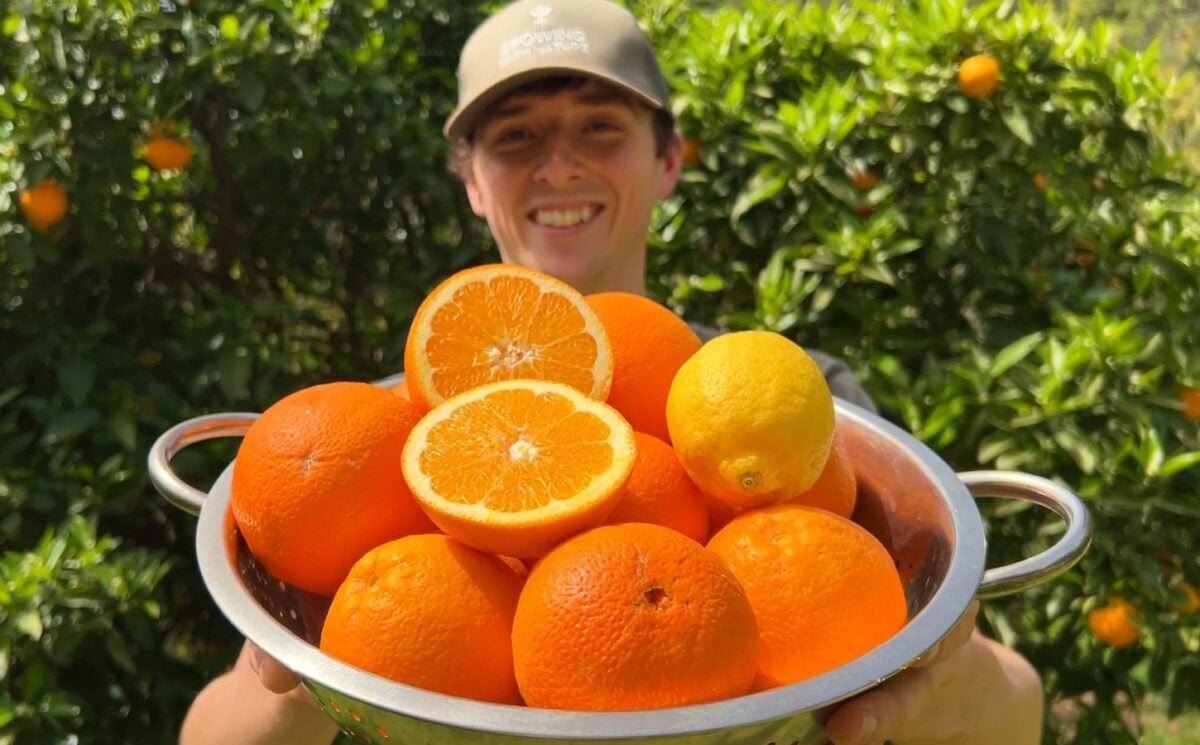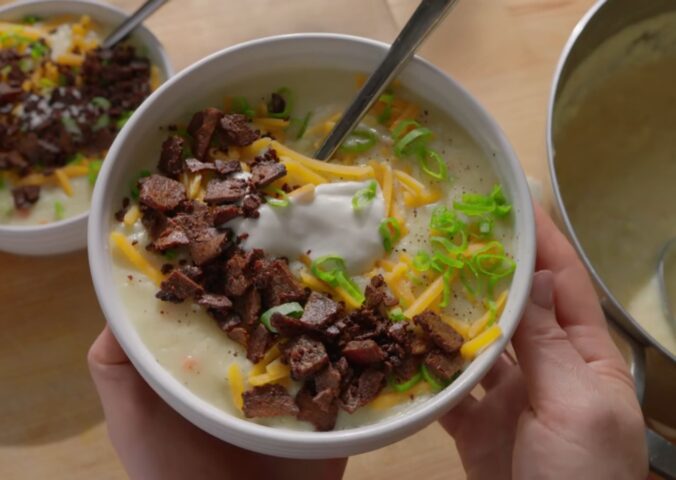Luke Kelsall, a vegan grower, recently shared insights into regenerative agriculture and self-sufficient food production in a video on his YouTube channel, Growing With Nature. Kelsall, known for his focus on plant-based growing methods, discussed the challenges of conventional farming and demonstrated his approach to cultivating food without the use of animal products or chemical inputs.
British-born Kelsall is on a mission to build a fully self-sufficient vegan homestead with his two brothers in Andalucia, Spain. Kelsall previously lived in the UK before relocating to expand his project in a Mediterranean climate. His passion for growing food was born out of reconnecting with nature at a young age and realising the importance of home-grown food for health and nutrition.
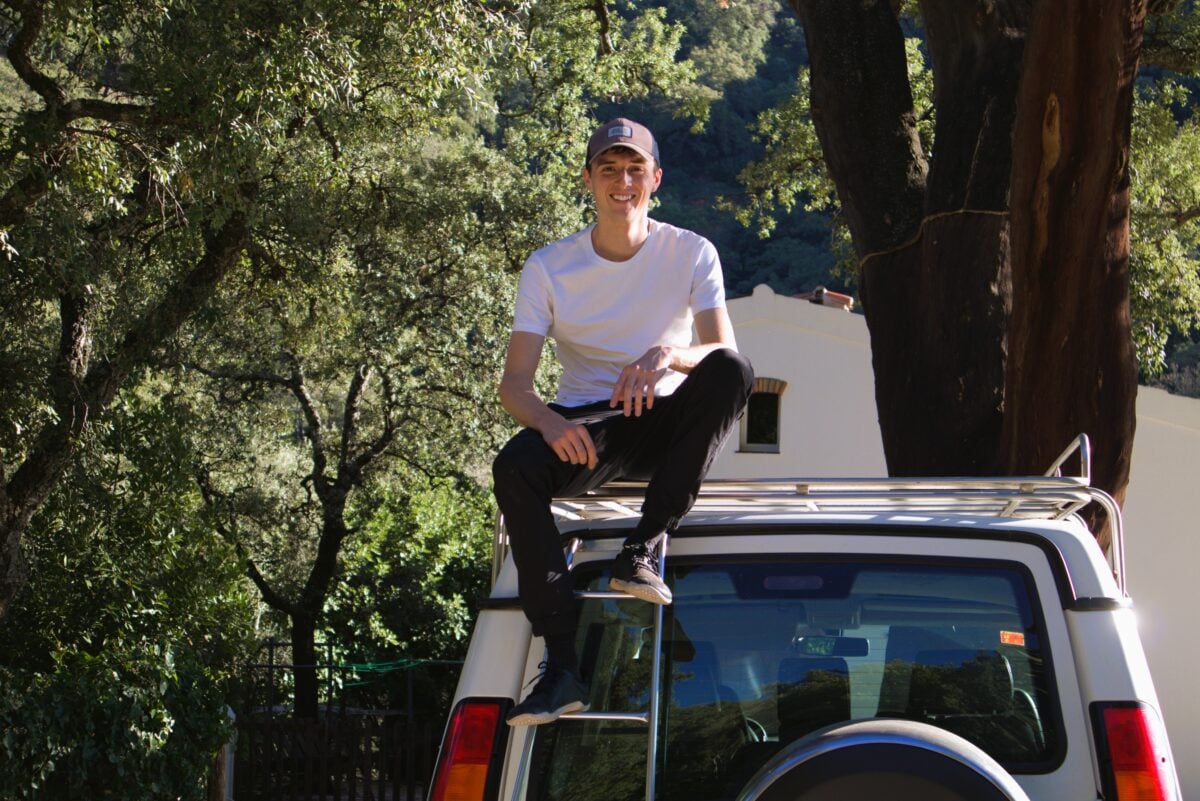
Kelsall uses a forest-like setting to grow the food, which includes fruits, vegetables, and other plant-based foods. He doesn’t use any chemical fertilizers or pesticides, and never disturbs the soil. Instead, he works with nature, rather than against it, believing this method to produce optimum results. “Most humans nowadays only look at nature as a resource to take from, and they don’t look at it as a place to protect and let flourish on its own,” Kelsall says in the video. He points to issues such as soil degradation, biodiversity loss, and deforestation as key concerns.
Kelsall has distanced himself from many traditional homesteading methods, which often rely on animal products for soil fertility. “I have never used any manure in any of my fruit tree food forests or vegetable gardens,” he said. “[The homestead is] completely 100 percent animal cruelty-free, animal product-free, and it hasn’t affected the produce in any negative way.” Instead, he promotes plant-based composting and natural soil regeneration techniques to maintain soil health.
Read more: What Is Sprouting? How To Grow Healthy Food ‘For Pennies’
Find out more about Luke Kelsall’s method in the video below:
The importance of biodiversity
A key focus of Kelsall’s work is food forests – self-sustaining ecosystems that mimic natural landscapes. His land is filled with a wide variety of plant and animal species, including wild boars, which is highly unusual for modern farms.
“We always think that we know better than nature, and that nature can’t handle life on its own. But it’s actually the opposite,” he says. “Usually you find nature declining the most when humans get their hands on it.”
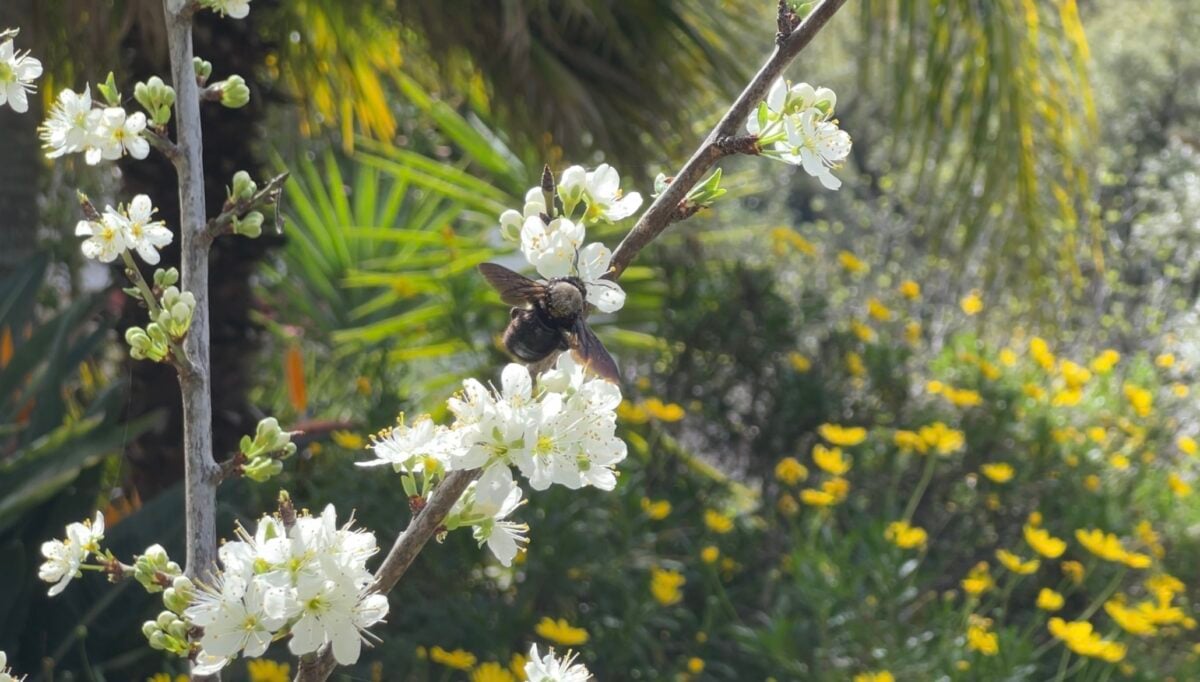
He highlights the role of trees in stabilizing ecosystems and preventing soil erosion, pointing to the contrast between forested areas and deforested regions that have become barren from farming.
“Only 45 minutes that way, the landscape gets very dry and barren, especially in the summer,” he says. “But here, it stays green year-round because the trees and the whole ecosystem are thriving properly as it should.”
Water use
Agriculture is a leading cause of water use, but water conservation is central to Kelsall’s approach. He relies entirely on a natural spring and rainfall as his water source, explaining: “This is the spring that supplies all the water to the property for watering the plants, for drinking water, for showers.” He describes how crucial it is to maintain the flow, saying, “It’s very important to keep this running and keep it clear.”
He shows how the system directs water from the spring into a filtration and storage process, stating: “We have the spring there, it flows under a pipe underground into this holding tub, where gravity will cause all the silt and dirt to sink.” A tube then takes the water to a holding well at the base of the hill of the property.
He demonstrates the abundance of the water supply, noting: “That flow rate – that is happening 24/7…Imagine if I was to leave a tap running in the house at that rate in South Spain. People would think I’m so wasteful with the water that I’m using. They’d probably report me for wasting water. But this is what nature is putting out.”
Keeping the ground covered
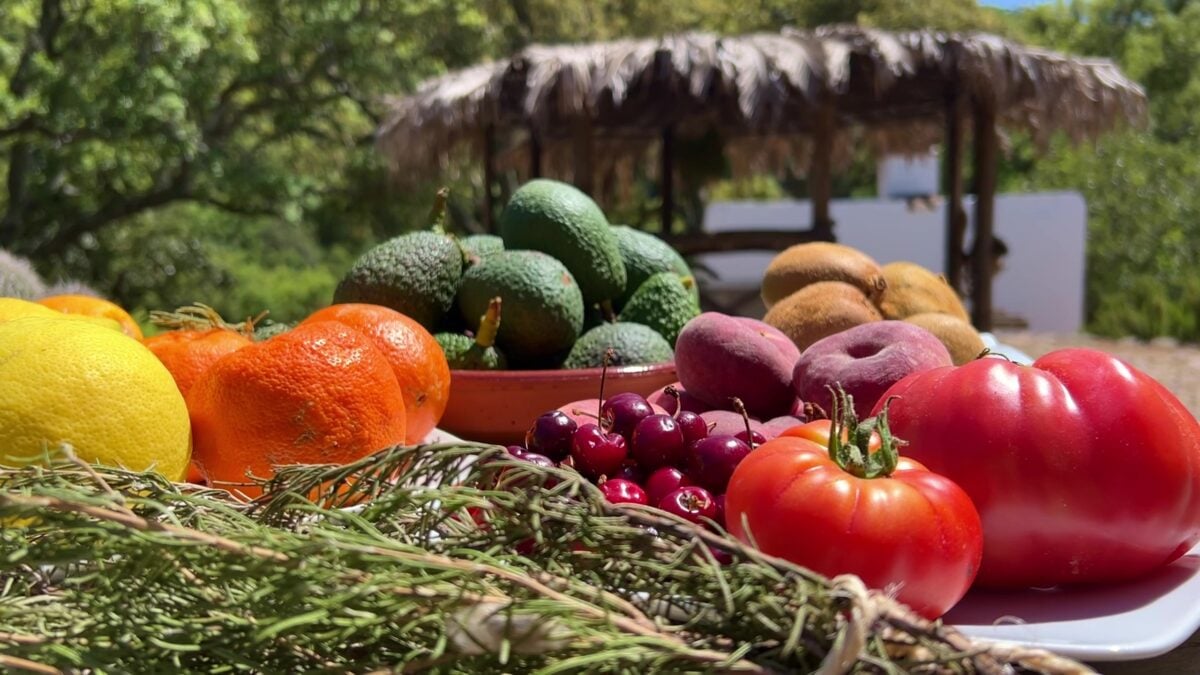
Just one teaspoon of soil contains more living organisms than the total number of humans on the planet, and keeping this soil healthy is vital in Kelsall’s work. When soil is undisturbed and intact, a mycelium network allows the plants to absorb water and nutrients more efficiently. Digging or tilling disrupts this process, however.
Because of this, Kelsall emphasizes the importance of keeping the ground covered. This, he says, protects the soil, adds nutrients, retains moisture, suppresses weeds, builds soil, and even prevents it from compacting. Coverings you can use include wood chips, grass clippings, leaves, and straw. It is important, however, to ensure that whatever coverings you bring into your garden do not contain any residue pesticides.
“I do not want to interfere with the naturally formed layers that have built over time,” Kelsall previously said. “Nothing I do can come close to beating that structure. It’s funny because people often comment on how good my soil looks, yet I really haven’t done anything.”
How to get started on homesteading
Many people believe that growing their food is inaccessible and unrealistic for them. But, according to Kelsall, doing so is far easier than many people think. You don’t need to own vast amounts of land, and you can simply start small if you have any outside space.
For those with limited space, Kelsall suggests small-scale solutions to increase food production. “If you’ve got any space to plant fruit trees, plant them, and you can eat fresh food as much as possible,” he advises. He emphasizes that when fresh produce from home gardens is grown in this way, it can reduce reliance on commercial food systems while supporting local biodiversity.To learn more about Kelsall’s work and how to grow an abundance of plant-based food sustainably, visit the Growing with Nature website.
Read more: Spanish Vegan Chain PLANT SHACK To Open First London Location
